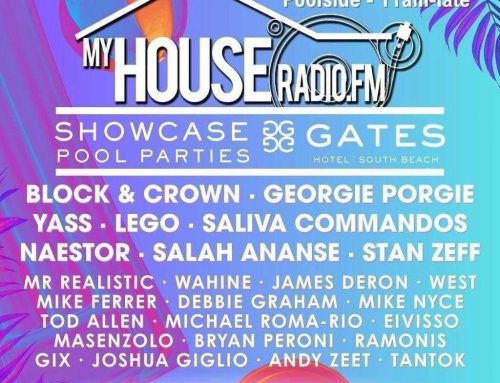
Idealistic, passionate … Larry Levan (left) and David Depino at Trax – Photograph: Tina Paul/BBC Studios
This wonderful series documents the passion and idealism of the 70s music scene. It’s an immaculately soundtracked history lesson – and so much more besides
After the tumult of the last few years, UK nightlife is in a perilous position, battered by rising costs for venues, a lack of staff, cash-strapped clubbers and changing habits ushered in by the pandemic. But if anything can get people in the mood to go out and dance again, it’s Disco: Soundtrack of a Revolution. This three-part documentary, a co-production with PBS, is the sort of top-quality music doc the BBC just casually and quietly releases, as if it does this sort of thing all the time. But this one really is a feast. It’s a history lesson with an immaculate soundtrack and it is about so much more than disco.
The first episode covers the boom in gay clubs in New York City during the early 1970s, and the arrival of a new sound, and wraps it all up in a thrilling social history. It begins not with sequins and glitter balls, but with protests and activism, as the 1960s marched forwards into a tough new decade. There was, as the radio presenter Mark Riley (not that one) says, “a fuck-you attitude among a lot of people, younger people generally”. There were mass marches for peace and women’s rights, young men were burning their draft cards for the Vietnam war, and LGBTQ+ people were rioting at the Stonewall Inn.
It also shows the dire financial straits in the US at this time, which led to two things. First was an excess of empty warehouse buildings, which were put to good use by artists and people who wanted to party. Disco documents the birth of the Loft, the night thrown by David Mancuso at his warehouse apartment in Manhattan in 1970, where a crowd of mostly Black and Latin partygoers could dance in private, away from the police, freely. They listened to music known as “danceable R&B” and took LSD. “I felt like Pac-Man, like these bubbles were gonna eat me,” recalls David DePino, who had dipped into the spiked punch that was served from a coffee urn. “And that’s when I said, I think I love acid.”

The other consequence of an economy in crisis came three years later, when restaurants were forced to rent out their venues at night, because of the great beef shortage of 1973. This meant that in some cases, the restaurants’ Black and Latin members of staff would end up at the parties there. “Unheard of,” says DJ Hollywood, describing these events in which different social groups would dance together “below 52nd Street”. It was at this point that the music critic Vince Aletti wrote about what he called “discotheque rock” for Rolling Stone magazine. The name was soon shortened to “disco”.
This is a comprehensive series, featuring a long list of interviews from people who were there to people who know their history and the musical debts they owe, such as Jake Shears, Jessie Ware and Kim Petras. It picks a handful of key tracks and explains how they became popular and which clubs and DJs championed them. It speaks to the inventors of disco innovations, from remixes to sound effects to speakers that faced four ways. There are interviews with the drummer Earl Young, who demonstrates what became the standard disco beat – “That’s why they call me the disco daddy,” he says, fabulously – and with George McCrae, whose Rock Your Baby is given as one of the three tracks that took disco out of the gay clubs and into the mainstream.
There is a lot more to come, but this portrait of its early days is wonderful, documenting an idealistic and passionate scene that was created by and for outsiders, who pushed culture onwards, upwards and into the future. “Dancefloors unite people through sound in a way that our governments and religions try to separate us,” says the DJ and producer Honey Dijon. “It’s the great equaliser.” The only issue is that this is going out on terrestrial TV on a Saturday night. Hopefully we’ll all be too busy communing on the dancefloor and have to watch it on iPlayer instead.”





Leave A Comment
You must be logged in to post a comment.